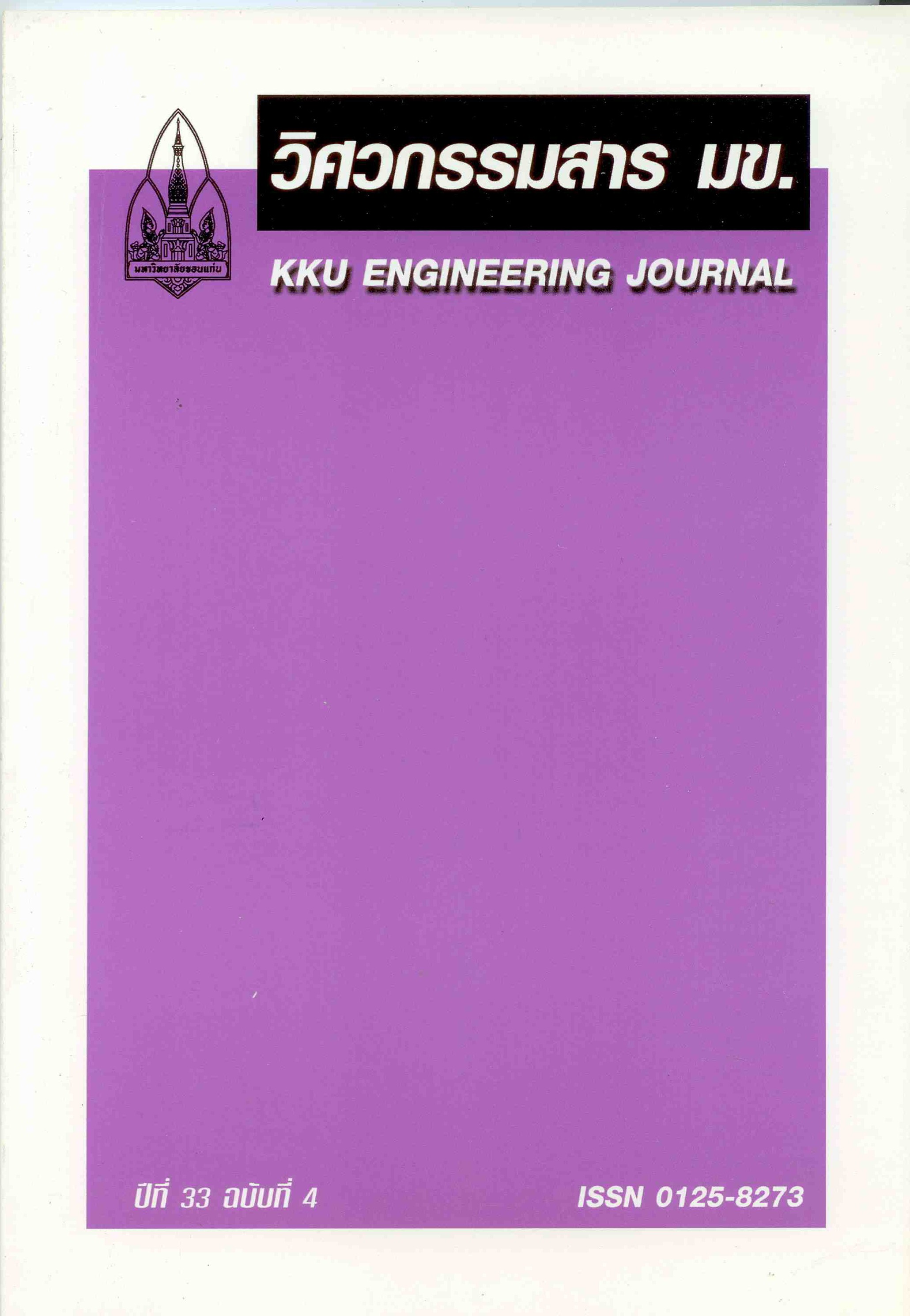Experimental Design for Product and Process Improvement: an Application in Bottle Glass Crushing Machine
Main Article Content
Abstract
This research aims to design and fabricate a glass bottle crushing machine as well as to
investigate the factors that affect the size of the glass aggregates. An evaluation of machine
operations leads to achievement of the machine efficiency and effectiveness. The machine works
properly and can produce glass aggregates of suitable size targeted for the small recycling center
market.
A 2k factorial design using central composite design is used for data collection and
fitting a second-order response surface model. The percentages of glass aggregates that can pass
through a sieve are the data set used for performing analysis of variance and obtaining the optimal
settings of the affecting factors. The results of this study have shown that the factors affecting the
size of the glass aggregates are speed and bottle-feeding rate. Furthermore, the speed of
approximately 450 rpm and the bottle-feeding rate of 15 bottles per minute are designed as the
optimal settings of the two factors so that the machine can produce glass aggregates of the
appropriate size targeted for the recycling industry with maximum yield averagely.
investigate the factors that affect the size of the glass aggregates. An evaluation of machine
operations leads to achievement of the machine efficiency and effectiveness. The machine works
properly and can produce glass aggregates of suitable size targeted for the small recycling center
market.
A 2k factorial design using central composite design is used for data collection and
fitting a second-order response surface model. The percentages of glass aggregates that can pass
through a sieve are the data set used for performing analysis of variance and obtaining the optimal
settings of the affecting factors. The results of this study have shown that the factors affecting the
size of the glass aggregates are speed and bottle-feeding rate. Furthermore, the speed of
approximately 450 rpm and the bottle-feeding rate of 15 bottles per minute are designed as the
optimal settings of the two factors so that the machine can produce glass aggregates of the
appropriate size targeted for the recycling industry with maximum yield averagely.
Article Details
How to Cite
Saikaew, C., & Chillapat, N. (2013). Experimental Design for Product and Process Improvement: an Application in Bottle Glass Crushing Machine. Engineering and Applied Science Research, 33(4), 415–430. retrieved from https://ph01.tci-thaijo.org/index.php/easr/article/view/6007
Issue
Section
ORIGINAL RESEARCH
This work is licensed under a Creative Commons Attribution-NonCommercial-NoDerivatives 4.0 International License.



